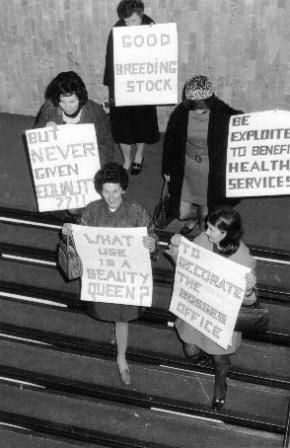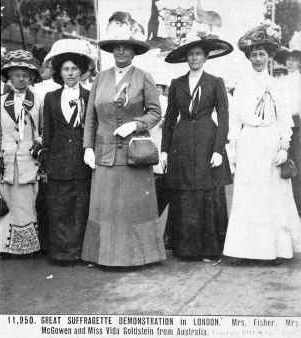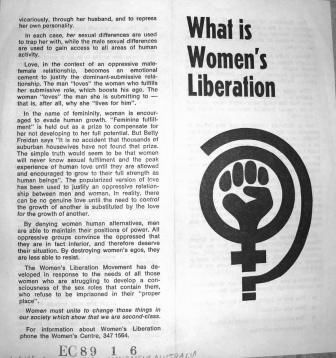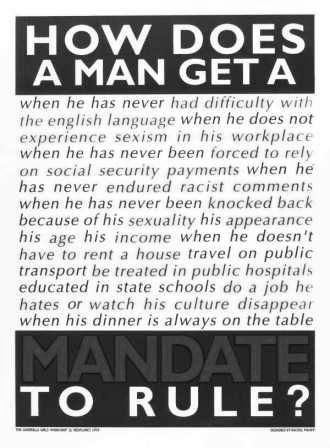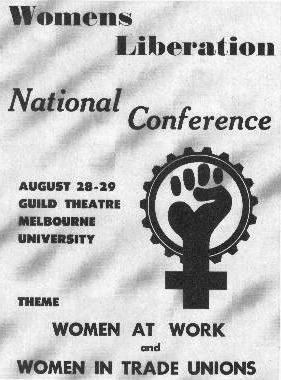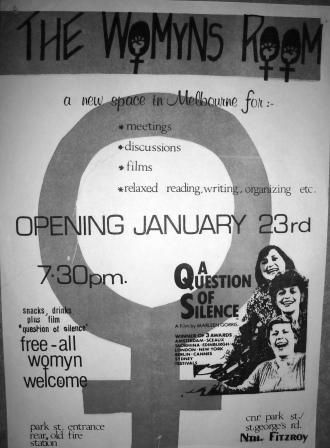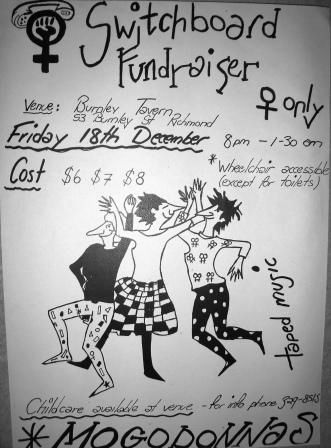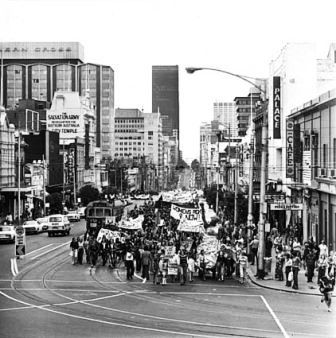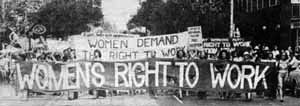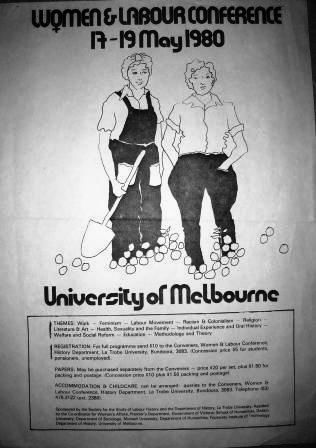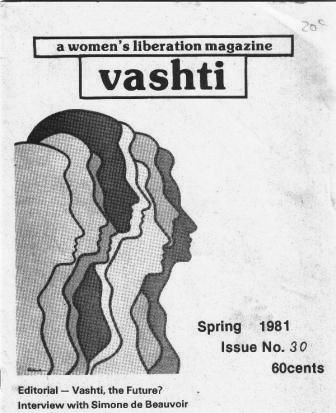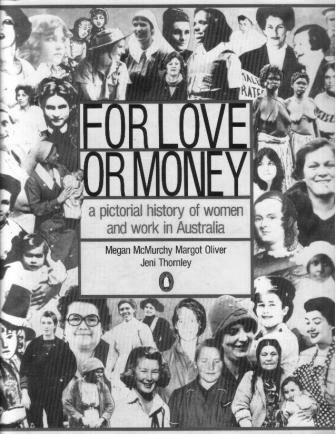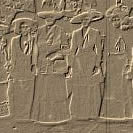 |
WOMEN WORKING TOGETHER |
THIS SITE CONTAINS
1 to 5 - Winning the vote
Chapter 1: The Vote or Bust 1788-1908
Chapter 2: Who Were the Suffragists?Chapter 3: 'United and Representative Agitation'
Chapter 4: Anti-Suffragists 1900-1910Chapter 5: Onwards to Success 1884-1908
6 to 10 - Social Justice and peace
Chapter 6: Moving into the Public World
Chapter 7: 1914-18 War - Pro Peace, Pro and Anti War
Chapter 8: Women's Work in WW1
Chapter 9: 1919-1935 - Surviving
Chapter 10: 1935-1945 Still Surviving
11 to 15 - Finding our voice as women
Chapter 11: 1945 and after - In Our Own Right
Chapter 12: 1970's Protesting - Working Together Again
Chapter 13: Finding Our Voice - Women's Liberation
Chapter 14: Working Collectively
Chapter 15: The 1970's & 80's Broader Women's Movement
16 to 20 - Our legacy our strength our struggle
Chapter 16: In Our Own Hands - Our Bodies
Chapter 17: Whose Right to Choose?- Our Selves
Chapter 18: Environment Matters
Chapter 19: 1990's When the Women's Movement is Quiet
Chapter 20: What a Legacy We Inherit!
Appendix 1: Papers and Interviews
Appendix 2: Songs from the Women's Movement
WOMEN FROM THE
WOMEN'S MOVEMENT
MENTIONED IN THIS WORK.
Abigail Adams
Ada Brougham
Adela Pankhurst
Adrian Howe
Agnes Murphy
Aileen Goldstein
Ailsa O'Connor
Alayne Park
Alex Butler
Alice B Toklas
Alice Henry
Alice Moon
Alice Suter
Alice Walker
Alice Weekes
Alina Holgate
Alisa Burns
Alison Alexander
Alison Dickie
Alison Richards
Alix McDonald
Alma Morton
Alma Thorpe
Andrea Coote
Annie McKenzie
Alva Geike
Amanda Bede
Amanda Biles
Amanda Graham
Amelia Ceranas
Amelia Lambrick
Amira Ingliss
Amy Castilla
Angelina Austin
Angelina Wonga
Ann Jackson
Anna Brennan
Anna Howie
Anna Morgan
Anna Pha
Anna Shaw
Anna Stewart
Anne Barker
Anne Carson
Anne Conlon
Anne Gowers
Anne Phelan
Anne Riseborough
Anne Stewart
Anne Summers
Annette Bear-Crawford
Annie Lister
Annie Lowe
Annie McKenzie
Anthea Hyslop
Antonie Stolle
Ariel Couchman
Audrey Oldfield
Barb Friday
Barbara Creed
Barbara Hall
Barbara Jones
Barbara Kerr
Barbara Marsh
Barbara Van Meurs
Barbara Wishart
Beatrice Faust
Bella Lavender
Belle McKenzie
Bertha Main
Beryl Carter
Bessie Harrison-Lee
Bessie Rainer Parkes
Bessie Rischbieth
Bette Olle
Betty Richmond
Bev Kingston
Bon Hull
Brettena Smyth
Brienne Callahan
Brigid McCaughey
Bronwyn Pike
Candy Broad
Carmel Shute
Carmen Callil
Carmen Lawrence
Carole Ford
Carole Wilson
Caroline Huidobro
Caroline Landale
Carolyn Allport
Carolyn Jay
Carolyn Worth
Carrie Chapman Catt
Carrie Reed
Caryl Friedman
Cath Mayes
Cath Stone
Catherine Anne Spence
Catherine Blackburn
Catherine McLennan
Cecilia John
Charlotte P Gilman (Stetson)
Cheris Kramarae
Cheryl Griffin
Chris Cathie
Chris Chapman
Chris Sitka
Chris Zsizsman
Christina Frankland
Christina Stead
Christine Haag
Churls Kramarae
Claire Berry
Clara Weekes
Clare Wright
Claudia Wright
Colleen Hartland
Constance Stone
Cynthis Carson
Dale Dowse
Dale Spender
Daphne Gollan
Deb Schnookal
Deborah Jordan
Deborah Wardley
Di Fruin
Di Otto
Di Surgey
Diane Crunden
Diane Kirby
Diane Sonnenberg
Dianne Edwards
Dianne Scott
Dianne Wells
Dimity Reed
Divna Devic
Dominica Whelan
Dora Coates
Doris Blackburn
Doris Challis
Doris McRae
Dorothy Turner
Dr Adrian Howe
Dr Aletta Jacobs
Dr Clara Stone
Dr Clare Isbister
Dr Constance Stone
Dr Helene Stocker
Dr Georgina Sweet
Dr Gwen Fong
Dr Janet Bacon
Dr Jocelynne Scutt
Dr Lyn McKenzie
Dr Marie Stopes
Dr Mary Glowrey
Dr Mary Stone
Dr Tamara McKean
Duggie Silins
Edie Turnevich
Edith Hedger
Edith Morgan
Edith Taylor
Edna Ryan
Eileen Capocchi
Eileen Kampukuta Brown
Eileen Unkari Crombie
Eleanor Dark
Eleanor Harding
Eleanor Hobbs
Eleanor M Moore
Elizabeth Cady Stanton
Elizabeth Coady
Elizabeth Hooke
Elizabeth Jackson
Elizabeth Ramsay-Laye
Elizabeth Reid
Elizabeth Rennick
Elizabeth Wallace
Elizabeth Wheelahan
Elizabeth Windshuttle
Ellen Julia Gould
Ellen Kleimaker
Ellen Ward
Elphinstone Dick
E McAllister
Emily Dobson
Emily Greene Balch
Emily Munyungka Austin
Emily Pankhurst
Emmaline Pankhurst
Emmy Evald
Ethel Barringer
Eugenie Davidson
Eva Eden
Eva Cox
Eva Figes
Eve Fesl
Eve Gray
Evelyn Gough
Evelyn Greig
Farley Kelly
Fiona Colin
Fiona Moorhead
Fleur Finney
Flo Kennedy
Flora Eldershaw
Florence Kelly
Frances Fraser
Frances Kissling
Fraulein Von Heymann
Freda Durham
Freda Gamble
Freda Steinberg
Frida Kahlo
Florence Miller
Gay Harris
Gayle Tierney
Gaylene Sneadon
Geraldine Briggs
Geraldine Robertson
Georgina McEnroe
Germaine Greer
Gertrude Bussey
Gertrude Stein
Gill Alecto
Gillian Waite
Gina Lewis
Gisela Kaplan
Glen Tomasetti
Greta Pearce
Gudren Drewsen
Gwendolen Swinburne
Harriet Taylor Mill
Hazel Donelly
Heather Jeffcoat
Heather Osland
Helen Anderson
Helen Caldicott
Helen Dow
Helen Durham
Helen Palmer
Helen Reddy
Helen Robertson
Helen Shardey
Helen Sexton
Hellen Cooke
Henrietta Dugdale
Henry Handel Richardson
Hetty Gilbert
Ilka Elkemann
Ina Higgins
Irina Dunn
Isabel McCorkindale
Isabella Goldstein
Isabella Martinis
Ivy Makinta Stewart
Jaala Pulford
Jacinta Allen
Jackie Fristacky
Jacqui Katona
Jan Armstrong Cohn
Jan Bassett
Jan Harper
Jan Mercer
Jan Testro
Jane Addams
Jane Alley
Jane Greig
Jane Mullett
Janet Bacon
Janet Bell
Janet Elefmiotis
Janet Lindsay Greig
Janet McCalman
Janet Michie
Janet Strong
Janey Stone
Janice Brownfoot
Janice Munt
Janine Bourke
Janne Reed
Jean Bedford
Jean Daley
Jean Henry
Jean McLean
Jean Melzer
Jean Sims
Jean Taylor
Jean Thompson
Jeanette Fenelon
Jeanette Powell
Jeanette Rankin
Jeni Thornley
Jennifer Clark
Jennifer Feeney
Jennifer Lee
Jennie Baines
Jenny Bacon
Jenny Barwell
Jenny Lee
Jenny Mikakos
Jenny Rimmer
Jenny Tatchell
Jesse Marlow
Jessie Ferguson
Jessie Henderson
Jessie Mcleod
Jessie Street
Jenny Pausaker
Jessie Street
Jessie Taylor
Jill Jolliffe
Jill Parkes
Jill Reichstein
Jill Roe
Jo Ellis
Jo MacLaine-Cross
Jo Phillips
Jo Wainer
Joan Coxsedge
Joan Curlewis
Joan E Basquil
Joan Goodwin
Joan Elkington
Joan King
Joan Kirner
Joan Rosanove
Joan Rowlands
Joanna Rea
Joanne Duncan
Jocelyne Clarke
Joe Dolce
Josephine Butler
Josie Lee
Joy Damousi
Joyce Barry
Joyce Johnson
Joyce Nicholson
Joyce Stevens
Jude Perera
Judi Willis
Judith Smart
Judy Cassar
Judy Morton
Judy Power
Judy Maddigan
Judy Small
Julia Church
Julia So So
Julianne Fogarty
Julie McCrossin
Julie Shiels
Juliette Mitchell
Kamla Bhasin
Karen Bird
Karen Gillespie
Karen Milgram
Karen Overington
Karen Silkwood
Karina Veal
Kate Darian-Smith
Kate Gilmore
Kate Jennings
Kate Miller
Kath Williams
Katherine Mansfield
Katherine Suzannah Prichard
Kathie Gleeson
Kathie Sarachild
Kathleen Fitzpatrick
Kathleen Maltzahn
Kathryn Sutherland
Kathy Gill
Kathy Wilson
Katrina Veal
Kay Daniels
Kaye Darveniza
Kay Hamilton
Kay Hargreaves
Kay Setches
Kaz Cooke
Keitha Carter
Kerry Blundell
Kerryn & Jenny
Kris Wilkinson
Lady Helen Munro-Ferguson
Lariane Fonseca
Laura Daniele
Laura Van Nooten
Laurie Bebbington
Lena McEwan
Lesbia Harford
Lesley Hewitt
Lesley Podesta
Lesley Stern
Lesley Vick
Leslie Cannold
Leslie Henderson
Lexie Methereall
Libby Brook
Libby Minifie
Lilian Alexander
Lilian Wald
Lily D'Ambrosia
Linda Aarchen
Linda Rubenstein
Linn Van Hek
Lisa Neville
Lisa Shuckroon
Liz Beattie
Liz Byrski
Liz Dowling
Liz Taylor
Lois Bryson
Lois Young
Lorri Manning
Louisa Lawson
Louisa Remedios
Louise Asher
Louise Walford
Lorna Scarles
Lucy Kowing Wilton
Lucy Paling
Lydia Becker
Lyla Barnard
Lyn Chambers
Lyn Hovey
Lyn McKenzie
Lynne Kosky
Mabel Drummond
Mandy Paul
Maree Gladwin
Margaret Bevege
Margaret Baskerville
Margaret Geddes
Margaret James
Margaret Mead
Margaret McKenzie
Margaret McLean
Margaret Roadknight
Margaret Thorp
Margaret Tims
Margaret Tucker
Margot Oliver
Maree Gould
Maria Mies
Marian Sawer
Marian Simms
Marian Vickers
Marie Kirk
Marie McInnes
Marie Rowan
Marion Harper
Marilyn Beaumont
Marilyn Hillgrave
Marilyn Lake
Marsha Thomson
Marylin Waring
Marilyn Wise
Marj Oke
Marjorie Barnard
Marjorie Barrett
Marjorie Waters
Mary Astell
Mary Bartlett
Mary Brodney
Mary Crooks
Mary Fullerton
Mary Gilbert
Mary Grant
Mary Killury
Mary Leigh
Mary Merkenich
Mary Murnane
Mary Owen
Mary Page Stone
Mary Rogers
Mary Salce
Mary Wolstonecraft
Mary Wooldridge
Matron Brown
Maxine Morand
May Brodney
May Langbridge
May Scheidt
May Smith
Megan McMurchy
Melanie Hall
Melinda Freyer
Melvina Ingram
Meredith Tax
Mesdames: Wallace; Baines;
Lavender; Webb; Singleton;
Morris; Gardiner; Reynolds,
Reid.
Mesdames Savage and Bella Lavender
Miles Franklin
Millicent Garrett Fawcett
Miss A Hume
Miss Anderson
Miss C H Thomson
Miss Cuthbertson
Miss D McRae
Miss E Goldstein
Miss E Hedger
Miss Effie Smart
Miss E Nesbit
Miss Geraldine Rede
Miss H Bridger
Miss H McGowan
Miss Harriet Newcomb
Miss Hilda Moody
Miss Jane Adams
Miss Janet Michie
Miss Jeanette Rankin
Miss Judd
Miss L Savage
Miss Lawler
Miss Lillian Locke
Miss Lillian Wald
Miss Mary Fullerton
Miss Miriam Geach
Miss Olive Gray
Miss R Smethurst
Miss Rapier
Miss Selina Cooper
Miss Simmons
Miss Wollen
Miss Stoddart
Miss V Bonner
Misses: Lewis; McMahon; Helsby;
Moody; Wise; Pascoe; Stewart;
Goodwin; Grant etc.
Misses: Mulcahy; Delaney; Townsend;
McGrath; Clements; Collins; Triffle; Cohen; McLean
Moira Rayner
Mollie Baine
Mollie Dyer
Molly Hadfield
Monika Wells
Morag Loh
Madame E Lorton Campbel
Mrs Anna B Howie
Mrs Bella Lavender Halloran
Mrs Beresford Jones
Mrs Bochinon
Mrs Brown
Mrs Catherine P Wallace
Mrs Chesterfield
Mrs Crawford
Mrs Crutchfield
Mrs D Irwin
Mrs D Monsbourgh
Mrs D Nankivell
Mrs Dwyer
Mrs E Hampton
Mrs E M Nimmo
Mrs E Pethridge
Mrs E Rothfield
Mrs Elliot
Mrs E W Nicholls
Mrs Emily Jackson
Mrs Evelyn Gough
Mrs F J Nicholls
Mrs F Williams
Mrs Florence Kelly
Mrs Fryer
Mrs Fisher
Mrs G Cameron
Mrs Goldstein (senior)
Mrs H A Dugdale
Mrs Harrard
Mrs Harrison Lee
Mrs Jamieson
Mrs Janet Strong
Mrs Jessie Vasey
Mrs Joan Rosanove
Mrs Josephine Butler
Mrs Kelly
Mrs Langdale
Mrs Laura Howie
Mrs Lister Watson
Mrs Lowe
Mrs Lucy Paling
Mrs M Hartley
Mrs M B Wollaston
Mrs M Mayall
Mrs Mabel Drummond
Mrs Malcolm
Mrs Martin
Mrs Mary Baird
Mrs Maudsley
Mrs M McGowan
Mrs Moody
Mrs Moore
Mrs Nance Wills
Mrs Naylor
Mrs O'Dowd
Mrs P Eden
Mrs Press
Mrs Pymm
Mrs Renwick
Mrs Robertson
Mrs Rosanov
'Mum' Shirl
Mrs Singleton
Mrs Smythe
Mrs Steele
Mrs Strong
Mrs Warren Kerr
Mrs Z Lees
Muriel Heagney
Myra Roper
Nan Chelsworth
Nancy Kessing
Nancye Smith
Narelle Dwyer
Nawal El Saadawi
Nettie Palmer
Nicole Steinke
Nina Bondarenke
Norma Grieve
Olive Gray
Olive Schreiner
Onnie Wilson
Pam Brewster
Pam Roberts
Pamela Branas
Pamela Curr
Pat Freeman
Pat Gowland
Pat Martin
Patricia Filar
Patsy Adam-Smith
Paula Trechler
Pauline Kennedy
Pauline Pickford
Peggy Cullinan
Penny Cooke
Penny Farrer
Penny Ryan
Peta Tait
Petra Munro
Philippa Hawker
Ponch Hawkes
Prof. Jo Wainer
Prof. Margaret Thornton
Rachel Avery
Rachel Hesley
Rae Walker
Raelene Frances
Ramona Koval
Rebecca West
Renate Howe
Renate Klein
Renee Miller
Renee Romeril
Rhoda Bell
Rigmor Berg
Rivka Pile
Roberta Meilleur
Robin Morgan
Robin Royce
Robyn Archer
Robyn Martin
Robyn Rowland
Romawati Senaga
Ros Bowden
Rose Scott
Rosemarie Gillespie
Rosemary Brown
Rosie Ferber
Ruby Rich
Ruby Tuesday
Ruth Bermann
Ruth Crow
Ruth Ford
Ruth Schnookal
Sabine Fernheicher
Sadie Kirsner
Sally Mendes
Sally Wilkins
Sandra Bloodworth
Sandra Onus
Senator Olive Zakharov
Sharon Jones
Sheila Bayard
Sheila Ricci
Sheila Wynn
Shirley Andrews
Shirley Swain
Sister Gladys Sumner
Sister Blake
Sister Brown
Sister Hannah
Sophie Slater
Stephanie Moore
Sue Jackson
Sue Mountford
Sue Pennicuik
Sue Reid
Sue Russell
Susan Anthony
Susan Hawthorne
Susie Grezik
Susy Potter
Suzane Fabian
Sylvia Azzopardi
Sylvia Plath
Sylvie Leber
Sylvie Shaw
Tammy Lobato
Tanya McIntyre
Teresa Magna
Terri Jackson
Terry Carney
Tess Lee-Ack
Tess Maloney
Thelma Fry
Thelma Lees
Thelma Prior
Thelma Solomon
Therese Radic
Theresa Lynch
Tjunmutja Myra Watson
Tjuta Ivy Makinti Stewart
Tracey Gurd
Tricia Caswell
Tricia Szirom
Trish Crick
Trudy Wise
Una Stannard
Val Ogden
Val Osborne
Vandana Shiva
Verity Bergmann
Vweronica Shwarz
Vida Goldstein
Virginia Geddes
Virginia Woolf
Vivien Brophy
Vivienne Binns
Wendy Lovell
Wendy Lowenstein
Wendy Poussard
Win Graham
Winsome McCaughey
Yolana Sutherland
Yosano Akiko
Yvonne Margarula
Yvonne Smith
Zara Wildenaur
Zelda D'Aprano
Zoe PhillipsThis work is copyright.
Please acknowledge the source/sources of anything you use.Every effort has been made to trace the people used on this site. Please contact us if you have any questions or concerns about our use of material.
Website advice:
Jean McConnachie
Editorial advice:
Barbara Hall, also Apsara Sabaratnam, Jean McConnachie, Irene Stavrakakis, Margaret Allison, Ramona Audrey, Waratah Rose Gillespie
Legal advice:
Matthew Nicholls
The forthcoming book is funded by Women's Web members and associates: Barbara Hall, Geraldine Robertson, Mary Crooks, Zelda D'Aprano
If you would like to contribute, please contact us.
CHAPTER 13: Finding Our Voice - Women's Liberation
'The strength and courage of women was becoming more and more apparent to me ...'
Zelda D'Aprano
Courtesy Zelda D'Aprano1...'WOMEN'S LIBERATION BELIEVES ...'
Zelda D'Aprano: 'Women's Liberation believes that it is wrong to see women and men as two totally different groups of people with totally different ways of thinking, working and feeling. We can't know what people would be like if they weren't told all the time: "You are a man and must be strong, brave, clearheaded ... " and "You are a woman and must be pretty, helpful, motherly ... ". But we can see that people turn into MEN and WOMEN because they are told all their lives that this is what they must do, and this is how they must do it.' Rivka Pile papers, Melbourne University.
'The type of women's organisation we envisaged was a militant organisation, for we recognised that women were not going to achieve anything unless they were prepared to fight. We had passed the stage of caring about a "lady-like" image because women had for too long been polite and lady-like and were still being ignored.' Zelda by Zelda D'Aprano Spinifex Press 1995
Courtesy Zelda D'Aprano2...THE WOMEN'S LIBERATION MANIFESTO
Women's Liberation Newsletter: 'Women's Liberation believes that women in our society are oppressed.
- We are economically oppressed: in jobs we do full work for half pay, in the home we do unpaid work full time.
- We are commercially exploited by advertisements, television, and press: legally we often have only the status of children.
- We are brought up to feel inadequate: educated to narrower horizons than men.
This is our specific oppression as women. It is as women that we are, therefore, organising. We demand:
1. That Women Have control Over Their Bodies - We believe that this is denied us until we can decide whether to have children or not and when we have them.
2. The Repeal of Abortion Laws: Abortion on Request - Abortion is an essential part of birth control. Contraception without the right to abortion means that the State, in effect, controls our bodies if we become pregnant unwillingly. Women should have the right to decide whether or not to have an abortion.
3. Freely Available Contraception - More education on contraception is needed at an early age and, for this to be effective, contraceptives should be easily available and free on social security. Doctors should not have the right to refuse contraception on their own moral grounds.
4. Free 24-hour Community Controlled Child Care - The government should provide full child care facilities throughout Australia. These should be free and staffed by qualified people - men and women. The centres must be under the control of those who use them, to prevent bureaucratic 'baby dumps'. Women should not have to bear individual responsibility for the care of children.
5. Equal Job Opportunities and an End to Low Pay - Employers have no right to pay women less than men, or to keep women in menial jobs. The government must act to correct this injustice by making it illegal for employers to discriminate against women. Although, at first glance, the equal pay decision in 1972 seems favourable, the full effect of the decision will not become apparent until 1975. In other words, we have been 'bought off' until then.
6. Equal Education Opportunities - To enable women to have really equal opportunity, all schools must stop streaming women into 'service' jobs which reflect the wife/mother role - cleaners, teachers, nurses, secretaries, social workers - essentially supporting roles. Sexual bias in curricula should be eliminated. The education system must play a large part in undoing the conditioning of women to accept an inferior role, by encouraging women to assert themselves in all fields.We believe that by united action we can achieve our aims. Women's Liberation Newsletter, March 1973 pp 5-6
Private Collection3...CONSCIOUSNESS RAISING GROUPS
Karen Gillespie: 'Consciousness Raising, as we know it, derives from the Chinese Revolutionary practice of "Speaking Pains to Recall Pains". By speaking about the bitterness we feel about our oppression, that which has been unconscious often comes to mind; one woman's realization often brings other injustices to mind for the others. As Juliet Mitchell stated in Women's Estate "The process of transforming the hidden individual fears of women into a shared awareness of the meaning of them as social problems; the release of anger, anxiety, the struggle of proclaiming the painful and transforming it into the political - this process is Consciousness Raising.' 1972 Ruth Berman papers University of Melbourne
Zelda D'Aprano: 'The women in our committee decided to have a Consciousness Raising Group. We had read that our sisters in America were doing this and we decided to give it a try ... We were gradually overcoming our self-body shame and self-hatred, and I was beginning to understand more about life and myself. We spoke of our childhood, our feelings towards parents and sisters and brothers, of our experience with men, our marriages, our lack of confidence, our feelings of inadequacy and our general non-being. One elderly woman remarked that she never thought it possible for women to interrelate with each other free from judgement, condemnation and bitchiness. We discovered with time that those of us who were in this initial group all had an extremely warm and close feeling towards each other - the result of Consciousness Raising.' p224 Zelda by Zelda D'Aprano Spinifex 1995
Out of these groups came realizations such as -
Margaret McKenzie: 'A true release of women (and men) from their confining roles is going to need more than just "equality of opportunity", or allowing more people to succeed as the values of capitalist society define success. It is going to take a transformation of the basic institutions which make up society.' 1973? Ruth Berman papers University of MelbourneKerryn: ' We do not want equality. It's a common misconception, even among women, that women's liberation is directed at a conquest of the privileges of men in the patriarchy. For a long time I pursued the doomed attempt to be freer and more equal by adopting male habits, male ideas about sex, male striving, competition and overt toughness.At first, of course, it was a matter of doing a lot of things which are not acceptable in women in our role-divided society, and being conscious of just where those boundaries are. At first it looked as if the meaning of those boundaries was my exclusion, women's exclusion, from the real world. On one level - good jobs, advancement, money; on another level - freedom to ****, drink, swear, and do as I pleased.
One thing is absolutely clear - what I took then to be the real world is wholly defined in the terms of the men who live in it. I knew when I was about fourteen that I'd have to break with my family's values, and I tried to do that - but it never occurred to me (and how could it?) that I would have to go on and break with something that lies behind my particular family and also deeply inside my own mind. And it's because of the patriarchal structure, the patriarchal values inside my own head (and everywhere else, too) that I was silly enough (like most of us) to suppose that the boundaries stand for exclusion, that the battle was to get over into that 'real' male world. Equality - I spoke their word. Casting a feminist glance at 'em, I can't help but be surprised that anyone would want equality with men, as men are. The role division is given ...
And then the dawn. The realisation that no role is living, that every role is a subtraction from reality, a hiding away of ourselves, a disguise of the fact that we are all just human beings - no more, no less. ... It's not just that it isn't good enough to strive for entrance into the male role - it doesn't work ... Equality with men means another role, a different incapacity to live honestly and freely ... Instead of searching out a way to live, I sought success, the outward appearance of virtue ... I sought acceptance, approval, advancement ... Men, too ... I lived in the barren unhappy climate of male values.
In the end, we have to challenge everything, not just the nuclear family, the couple, the discrimination against us etc. but the way we ourselves have been taught to think.' 1973? Melbourne Feminist Collection of Writings pub The Women's Centre
'How does a man get a mandate to rule?' Rachel Maher, Red Planet Posters State Library of Victoria rp000056
This poster explores how men, like Jeff Kennett, become privileged.4...THINGS WERE STARTING TO HAPPEN
From Taking Time compiled by Yvonne Smith -
Yvonne Smith: '1971 - Melbourne University Women's Liberation group formed.
- The first bank in Australia to grant loans to women without a male guarantor was the Bank of NSW in February, and followed a campaign by the Women's Action Committee.' Taking Time ed. Yvonne Smith Pub. Union of Australian Women(Update 10/10/09)
Zelda D'Aprano: 'Mr Bolte, ‘Pregnant Victorian Premier’ poster, which was displayed all over Melbourne on the 21st May 1971...I studied a map of the city area of Melbourne and divided it up into sections in preparation for the paste up. On the evening of the 20th May, I drove the women without transport to their designated area with their pails of paste and brushes and they did an excellent job. I am sure that almost all of these women had never before participated in this type of activity. Correspondence 15th October 2009
The following news item appeared in the Herald next day:
MEN WOULD ENACT ABORTION LAW REFORM IF IT WAS MEN THAT GOT PREGNANT
State Library of VictoriaWomen from Women's Action Campaign and Women's Liberation were sought to address meetings -
Letter to schoolgirls, early 1971- Zelda D'Aprano: 'It is my object today to impress upon the girls here the need for a qualification that will give you life long employment. This is so vital. You cannot escape work or life by getting married. Marriage is no escape. If you think this is so, then you will find that in most cases it is essential for the wife to work in order to make ends meet. We have a two wage economy. Because of the structure of our society, women have been relegated to all the lower sections of employment. These positions require little skill, therefore attract low salaries, and you are easily replaced ... I am here to encourage girls to undertake apprenticeships in all possible spheres ... it is very gratifying to be employed for your ability as a person, not as a decorative object.' State Library of Victoria6...1971 NATIONAL CONFERENCE ON WOMEN IN THE WORKFORCE AND TRADE UNIONS sponsored by the Women's Action Committee August 28-29 at the University of Melbourne.
Authorized by the Women's Action Committee, Box 23 North Carlton
Women's Liberation archives, Melbourne University7...1972? INTERNATIONAL WOMEN'S DAY DEMONSTRATION
9 am City leafletting by Women's Liberation groups.
10 am Assemble at the city square for street theatre and literature and counselling stands conducted by special project groups - child care; abortion law reform; equal pay; feminist teachers; sex education.
10.30 am Speakers and Singing:
CHAIRPERSON: Bon Hull (Women's Action Centre)
SPEAKERS: Jill Jolliffe (Women's Liberation - What Is It All About?); Joan Goodwin (Women and Education); Sheila Wynn (Aboriginal Law Reform).
SINGERS: Glen Tomasetti and Margaret Roadknight.Assemble for march to proceed around city block and finally to Treasury Gardens. Here festivities will continue - stands, street theatre, singers and speakers.
SPEAKERS: Winsome Mc Caughey (Child Care); Speaker to be announced; Zelda D'Aprano (Equal Pay - one value for the job).A free creche will be available throughout the demonstration for the children of people wishing to participate. It will be held at 208 Little Lonsdale St Ciy and will be open from 9.30 am Ring ...
8 pm A party will be held on the evening of March 11 at 18 Newland St Caulfield. Admission will be $1 per head, BYOG, supper provided. Proceeds to March Action Campaign. Friends and supporters of Women's Liberation welcome. Authorised by Women's March Action Campaign, 290 Rathdowne St Carlton .
1972 First issue of Vashti's Voice - a quarterly magazine -
Jean Taylor: 'Vashti's Voice, another Victorian WL publication, started then (1972) as well and there were interstate and international magazines such as Ms from the United States, Broadsheet from Aotearoa (NZ), and Spare Rib from the UK. So much was being published and written about and women were ringing in about all sorts of things.' Jean Taylor, fromWomen'sWebWomen's Stories,Women's Actions pub Union of Australian Women and www.womensweb.com.auVashti's Voice: 'Vashti's Voice - Bulletin of Carlton Women's Liberation workshop group. Vashti, a Biblical Queen described in the Book of Esther, was the first wife of King Ahasuerus, who commanded her to appear 'with the crown royal, to shew the people and the princes her beauty'. She refused, whereupon it was decided that as punishment she should be banished and a new queen chosen, on the grounds that 'this deed of the queen shall come abroad unto all women, so that they shall despise their husbands ... Thus there shall arise too much contempt and wrath'. Like Vashti, Women's Liberationists reject their assigned role as sex objects. We hope, too, to spread ideas of women's freedom 'abroad unto all women'. The contempt and wrath we express is against a society which as long denied women the right to an independent social, political and intellectual life.'
Private Collection9...1972 MULTI LINGUAL EQUAL PAY LEAFLET
Issued by: Women's Liberation; Union of Australian Women and several trade unions including the Food Preservers' Union, Clothing Trades Union; Furniture Trades Union; Butchers' Union; Textile Workers Union; Miscellaneous Workers' Union; Amalgamated Engineering Union.
Do You Get Equal Pay? If you do, you are one of the few lucky women in Victoria. If you don't, here are six reasons why you should:
1. You pay the same fares as men, the same prices for entertainment and at the supermarket.
2. You work the same hours as men and just as hard.
3. If you are deserted or widowed, or if your husband should become a chronic invalid, the family may have to be supported on your wages.
4. If your husband loses his job and you are working, your family must rely on you for support, as he cannot claim full unemployment benefits.
5. One third of the total number of workers are women - cheap labour for industry.
6. Men and women are equally necessary in industry and commerce. Why should women be paid less?Join with us and the unions in our fight to get it.
Women's Liberation Archives Melbourne University10..THE WOMEN'S LIBERATION CENTRE
1972 April/May: 'The Women's Movement now has its own office at 16 Latrobe Street.
6. Vashti's Voice, a Women's Liberation newsletter, will be out very soon.
7. The following new projects are underway - Teachers' workshops; Nurses' workshops; Migrant women; Campaign to Undermine Sexist Advertising; Prison Reform Action Committee; Divorce Law Reform Group.
8. Equal Pay Committee report.
9. Child Care Action Group report.
10. Campaign for International Co-operation and Disarmament (CICD) and Women's Liberation; ALRA and Women's Liberation.' Women's Health Collective archives, Melbourne University1972 also saw - Jean Taylor: 'a meeting at Assembly Hall, Melbourne, to formulate consciousness groups, the formation of the Women's Action Abortion Collective' See Chapter 17 Whose Right to Choose, Germaine Greer visiting Melbourne to promote 'The Female Eunuch', printing of the first issue of the Women's Liberation Newsletter, opening of the Fertility Control Clinic See Chapter 17 Whose Right to Choose, and Glen Tomasetti's song 'Don't Be Too Polite, Girls' See Appendix 2 Songs from the Women's Movement.'
Jean Taylor: 'There was a whole social upheaval. Women were starting to realise we needed to do something and I took advantage of this ... At the end of 1972 I joined a Women's Liberation Consciousness Raising Group in Brunswick and that was the start of my involvement in the Women's Liberation Movement. I remember the first meeting. I was sitting in a room with women I didn't know. I was explaining something, as we all took turns around the circle to speak, and women were nodding - agreeing with what I was saying. That was a very different experience, because I was normally seen as a bit of a radical, a woman going to university, which was still unusual for a woman to be doing at my age. There were middle-aged women, whose kids had grown up, going back to education, but I was going back earlier than that - at age 27 - but later than the teenagers straight from school. It was a very vibrant, exciting, dynamic time for me personally as well as politically.
From the moment I joined the Brunswick CR Group I was completely involved. The Women's Liberation Centre was set up then, with a telephone for information and support and also as a meeting place for the un funded activist groups. I started doing roster there. The Centre was basically a large meeting space at 16 Little La Trobe Street. So women could either drop in, if they were in the city, and pick up the latest position paper for 20 cents or so, or subscribe to the Women's Liberation Newsletter or they could ring up and find out information.' Women's Web www.womensweb.com.au
Amongst many there was:
- Coalition Against Depo Provera - Di Surgey
- DES Action
- Anti 'Itsy Bitsy Teenie Weenie Bikini contest - Anne Carson
- Social Insecurity Collective
- Women Against Poverty and Isolation - Judy Cassar, Joan King, Rosemarie Gillespie
- Campaign for Economic Justice - Marjorie Barrett, Greta Pearce, Rosemarie Gillespie
- Fairlea Prison Action People's Justice Coalition - fighting the privatisation of prisons, the imprisonment of women and speaking out about what happens in prisons
- Women Behind Bars
- Women Against Nuclear Energy
- Women's Liberation Employment Project
- Women and Radical Ecology - 'The Earth is Doomed if men and women remain in their present destructive roles'
- Victorian Women's Student Network - Melinda Freyer and Theresa Lynch
- Anti Anzac Day - Ariel Couchman ... and much, much, more.
Private Collection11..WOMEN'S LIBERATION SWITCHBOARD
Jean Taylor: 'I was a founding member of the Women's Liberation Switchboard in the new building. Having a telephone for referral, information and support and a building in which to meet were always two of main ingredients for the feminist revolution. Women's Web http://www.womensweb.com.au
Private Collection12..'WHERE ARE THE WORKING CLASS WOMEN?' Zelda D'Aprano
Zelda D'Aprano: 'As more working women enter the movement and become aware and articulate, they cease to be seen as working class and the cry continues 'Where are the working class women?'Melbourne Women's Liberation Newsletter Nov 1973
Jenny: "Sisters, change is a real possibility" Melbourne Feminist Collection of Writings pub The Women's Centre
Jean Taylor: 'The first Women's Liberation conference at Mt Beauty, Victoria, Elizabeth Reid appointed advisor to the Prime Minister, the first National Lesbian conference, an abortion demonstration on 30 July See Chapter 17 Whose Right to Choose, the start of women's studies courses and publication of 'The Witch of Grange Grove' by the Women's Movement Children's Literature co-operative.' Maureen O'Connor papers, University of Melbourne
Telephone List:
Community Controlled Childcare - Winsome McCaughey;
Women as People - Beryl Carter;
Women's Prison Action - Brigid McCaughey;
Abortion Law Reform Association - Pat Martin;
Working Women's Committee - Zoe Phillips;
Equal Pay - Sylvia Shaw;
Abortion Trust Fund - Keitha Carter;
Women's Performing Group - Kerry Blundell;
Women's Electoral Lobby - Jill Parkes;
Women's Abortion Action Coalition - Dorothy Turner and:The Women's News Service, Melbourne Women's Liberation Newsletter, Shrew, Rouge: These were publishing as well as student newspapers printing feminist material, for example: The Women's News Service '81 No 35 contained, in part, articles headed
- Women Against the Tour (Springbok);
- Abortion Alert for Women (warning about activities of the Right to Life Association);
- National Feminist Refuge Conference;
- Weapons for Women's Liberation - Strategies and Tactics Conference and:
- Women and Shift Work, Linda Rubenstein: A study of women working at night in Melbourne's western suburbs.Women were questioning their given 'place in life'. A Feminist Theory Conference was held at Mt Beauty on the 1973 Australia Day weekend - 27, 28 and 29th January.
Dale Dowse paper: 'Towards a Feminist Aesthetic - My mother announced to my husband and me that she hoped when she died she would be considered an important painter ... The response (from my husband) must have been embarrasing, at least ... he changed the subject ... Well, needless to say I wasn't going to put myself out on a limb like that. I learnt to be satisfied, more, to gain true pleasure from tidy little things in tidy little prescribed ways. I learned to revel in a play-pen of discovery in a number of different crafts and never dared, no, never even wanted to undo the latch. I learned to cook with verve, knit efficiently, sew proficiently, paint promisingly, scribble professionally. Spreading my talents like a child spreads his faeces about the cot.I learned not to be too good, or try too hard. I learnt how to do just enough to earn praise and be certain that any man would feel proud but not threatened with me by his side ... But now, we do have each other. How much this will mean to the development of a revolutionary feminist art that could transmit our insights to others is yet to be determined, but I, for one, have high hopes, built to be sure on what has happened already. I have this crazy vision of some kind of real explosion. It's a nice thought ...
And something about our new ones. Let them buy symbols of our liberation rather than images of oppression. For the danger is that by creating beautiful pictures of suffering women, we could be guilty of idealising that suffering. The duty of a revolutionary aesthetic, above all, is to provide alternative models. For what else would we be but "woman creating herself"? Joy in the struggle.' (See Chapter 14, Heading 5 'The Women's Art Movement') Di Otto papers, University of Melbourne
13..1973 INTERNATIONAL WOMEN'S DAY (IWD)
Union of Australian Women's International Women's Day Celebration
Methodist Church Centre
Speaker will be Mrs A A Blake, Llb, member of the UN Association of
the Australian Committee on Racism and Racial Discrimination.
Her subject will be"The Work of the UN in Combating Discrimination Against Women".
Donation 70 cents, Pensioners 40 cents.UAW Newsletter March '73: IWD had its biggest celebrations for many years (last year) - with a rally in the city square and a 2,000 strong march thru' the streets. UAW, Women's Liberation, the Women's Electoral Lobby and other groups took part and the UAW also had a luncheon with Geraldine Briggs telling us of the double discrimination facing her people as both woman and Aborigine. This year a public "Speak Out" is planned as well as a march, and the UAW has been asked to provide a history of this day - we will also distribute a leaflet at the march.
Vashti's Voice July 1973: 'On Saturday the tenth of March, three thousand women turned up to march, sing and chant their way through the streets of Melbourne, demanding an end to their oppression and exploitation.' University of Melbourne archives
14..1974 INTERNATIONAL WOMEN'S DAY
Vashti's Voice March '74: 'Women have never had their rights given to them, they have had to gain them through struggle and revolt. This is the essence of the commemoration of International Women's Day... ' See Appendix 1 Papers
Friday March 8th Stop Work Meeting 2pm City Square, Saturday March and Rally 10.30am City Square followed by picnic. March 11 am, Rally 10 - 3 March 12 Carlton Gardens.We demand:
- Economic independence
- Free quality health care for all
- Social responsibility for child care
- A woman's right to control her own body
- A stop to all oppression of lesbian women
- No police brutality against Aboriginal women
- An end to sexist education, policy and practice.Vashti: 'This year IWD in Melbourne was well organised and good fun. About 2,500 were in the Square to hear speakers and see part of the Pram Factory's review "Women's Weekly".
Adriana's speech (excerpt): 'It's more than just the basic reforms such as repeal of the abortion laws, free child-minding centres, equal pay with minimum wage for women, and no discrimination in education and employment opportunities that women's liberationists seek; we seek an entire dissolution of those structures and those people that place omen into a particular role in life; that predetermine what the definition of a woman is and what her place and function in society will be. This society's attitudes towards women have to be revolutionized. To expose the sexist attitudes towards women, is to engage in the process of demolishing the old attitudes and creating the new - this is our struggle of liberation.' Vashti 1974
Joan Coxsedge: '... (from 1974) two sociologists wrote that 'feminism, in its 19th and 20th century sense of an organized movement by women for women, is a spent force'. Since then, as we all know, the spent force has revived itself miraculously.' from the Jo Phillips papers, Melbourne University
Yvonne Smith: ' - The first refuge for battered women opened in August in Kew.
- Minimum Wage Case (Printing and Allied Industries Union). Test Case. Submission put by Women's Electoral Lobby, Union of Australian Women, and the National Council of Women. Equal minimum wage for women and men was won on 2 May 1974.
- Women's Liberation Halfway House Collective formed.
- First National Feminist and Socialist Conference at University of Melbourne 5-6 October.' p 31 Taking Time A women's Historical Data Kit compiled and edited by Yvonne Smith, Union of Australian WomenFarrago Vol 52 No.20 1974 (Melbourne University paper) - Yosano Akiko: 'The mountain moving day is coming / I say so, yet others doubt / Only a while the mountain sleeps. / In the past all mountains moved in fire, / Yet you may not believe it. / Oh, man, this alone believe, / All sleeping women now will wake and move.' Rivka Pile papers, Melbourne University.
Lot's Wife September 4 1974 (Latrobe University paper) - 'Our history has been stolen from us / Our heroes died in childbirth, of overwork, of oppression, of rage. / Our geniuses were never let to read or write. / Free our sisters! Free our selves!' Rivka Pile papers, Melbourne University.
Women's Learning Network advertising: 'The courses ... are for ALL WOMEN ... We feel it is important that women have their own groups where they can meet together in a warm, supportive atmosphere to share experiences and knowledge. We want not only to be free from sexist education but to do away with all those aspects of schooling which developed us in fear, feelings of inadequacy and frustration. There will be no competitive learning, testing, smart/dunce labels or experts. We see these courses as just a beginning.' from the Jo Phillips papers, Melbourne University
16..ALL OVER THE WORLD - Iceland
Women's Liberation Newsletter: ''General Strike of Women - full time housewives, factory workers, teachers, typists, actresses, child minders, telephonists, prostitutes, bank clerks, school girls, mothers, grandmothers. Some businessmen took their children to work. Ninety percent of industry ground to a halt. Meals not cooked. Shopping not done. Floors not swept. Of 60,000 women in all Iceland, 25,000 at mass meeting in the capital, Reykjavik. Women struck to show their power - and did!' Jo Phillips papers, University of Melbourne
17..LESBIAN LINE A telephone support, information and referral service by women for women.
LESBIANS ARE EVERYWHERE!
What Exactly is Hero-sexuality and What Causes It?
- Parental problems?
- Childhood trauma?
- Social conditioning?
- Pathological condition?
- Cultural deprivation? (Many simply cannot afford to be gay)
- Fear of death?
- Economic conditions?
- Hormonal imbalance? pamphlet in Thelma Solomon papers, Melbourne UniversityBev Kingston: 'Lesbianism and Feminist Theory - One of the long-standing and most effective put-downs of women's movements organized to achieve ends outside the traditional women's sphere in society has been the charge and threat of frigidity, masculinity, and ultimately lesbianism. The implications have always been that women are somehow defective as women because they have rejected their 'normal' or 'natural' roles and cannot or will not relate as women. Such charges were made in the early phases of feminist activity during the late nineteenth century and also during the nineteen twenties. Most certainly there were a great many women who found their association with and discovery of other women in "the cause" liberating and fulfilling ...
If the notion of a female culture is to be of any use to us at all, it needs to provide for the existence and presence of lesbians within the women's movement, and within the whole society, in such a way that they are neither stigmatised, nor exploited, nor lionised ... and in which sexual preference is irrelevant, alongside the quality of human communication it produces.' Refractory Girl Summer 1974
Julie McCrossin: 'The label "lesbian" has been used to keep women apart long enough'. AUS Monash Women's Conference Melbourne September '75
Women's Liberation Archives Melbourne University18..WOMEN AND CHILDREN IN TRANSITION (WACKIT)
1974 leaflet, Judi Power, Gill Alecto, Judy Willis: 'WACKIT is a support, action and resource group for women and children going through marriage breakups. We are an independent women's liberation group established by women who had themselves encountered a great deal of difficulty in this area.' WACKIT worked hard and quietly on education, law reform and social support systems. Telephone advice line calls showed that violence in marriage was greater than anyone had imagined, so WACKIT also worked in conjunction with Women Against Rape and Refuge Referrals. See Appendix 1 Papers
Feminist Mothers group: '80% of women become mothers. Since it is a reality that women are mothers then motherhood is an issue fundamental to feminism.' 1974 Socialist Feminist Conference papers
1975 IWD March, Melbourne National Library of AustraliaHalfway House Collective: 'We, as the Halfway House Collective, participated in the march and the demonstration. Some days before we painted banners and placards, and wrote a song to the tune of a pop song "Lilly the Pink" with stirring words such as -
"Poor little housewife / Led such a hard life / Till she came to the Halfway House.
Chorus: "He did drink and drink and drink, / She stood at the sink, the sink, the sink, / The victim of a never ending bind / Always pretending / Never admitting / That happy families / Are hard to find ..."
We started writing out an updated version of "Punch and judy", and with words that women themselves had heard so often from their men, the police, and helping professions, we got together a three scene theatre.' 1974-76 Herstory of the Halfway House - Women's Liberation Halfway House Collective, Melbourne Australia19...WOMEN'S PRISONER ACTION COMMITTEE
Leaflet: 'Fairlea Women's Prison is tucked away, out of sight and out of mind ... There are only 39 women there at the moment. Women in Fairlea do not suffer the same blatant brutality as do women in Pentridge. Their torture is slower. Being so disconnected from the outside world and being so powerless to make any decisions in their lives is an endless source of frustration and despair. The crimes that women are put into Fairlea for don't really matter, for while our system allows huge companies to pollute our environment, and multi-national corporations to make gigantic profits from exploiting Australians and Australian resources, it has no possible justification for its denial of human rights and human dignity to those in Fairlea, and all other institutions.
RALLY: City Square, Saturday August 24: 10 am
DEMONSTRATE AT FAIRLEA: Saturday August 24: 2 pm -
meet cnr Heidelberg and Yarra Bend Roads, Fairfield Renee Remeril papers, Melbourne University20..1974 LIBERTY, EQUALITY, SORORITY Socialist Feminists
Joan Coxsedge: '... The problems of women are the problems of the whole society; the solutions for women lie in solving far-ranging social problems. But this involves nothing less than a revolutionary restructuring of the most basic institutions of society. There has always been sexism, no matter what the economic system. But sexism has no chance of being eliminated under capitalism. Should some of us believe we have 'made it', whatever that means, the rest of us will still be used to supply cheap, free and reserve labour, to consume, to scab on each other. We need a socialist system based on human needs, not the profit of some off the exploitation of all the others. We as women must create a total revolution - a classless society where racism and sexism cannot exist ...' from the Jo Phillips papers, Melbourne University
21..1975 WOMEN AND POLITICS CONFERENCE
Vashti's Voice 13 Spring '75: 'Ways You Can Support Aboriginal Women -
1. Giving support to abolish the Queensland Act.
2. Supporting Senator Neville Bonner's historic motion in the Australian Senate for compensation for dispossession of our lands.
3. Supporting our request for legislation to create a National Aboriginal Claims Commission similar to the North American Indian Claims Commission: We want everyone to understand that Land Rights Compensation would give us independence and dignity and end government grants for once and for all. Maybe there would be no more "white backlash".
4. Becoming aware of the problems faced by Aboriginal women in their own areas; such problems as housing, hygiene and home economics.
5. Getting to know Aboriginal organisations in your area.
6. Help stop forced sterilization on our Black women in the Northern Territory.
7. Ensuring that we Aboriginal women are always consulted when decisions are being made about our future and affairs.
8. Support our medical centres.
9. Understanding that we have a culture of our own that we wish to preserve. We think that white is not always right. We do know best about our own culture and family. We resent being told what is so about us by so-called "experts".
10. Demanding that proper hygiene be applied to our people who are in the care of white medical personnel. We resent our young children being kept dirty because white people say "they are like that".
11. Supporting our desire to have Aboriginal Affairs taken out of the Public Service arena. This would halve our problems because bureaucracy obstruct progress. We should have an Aboriginal Affairs Commission which could relate realistically to our way of life.
12. Ensuring preservation of all our sacred sites and their return to the tribal descendents of that area.
13. Fighting with us for proper and adequate housing for all people throughout Australia.
14. Coalescing and joining us as women to work together on all issues.
15. Giving imported South Pacific Island people support in their quest for recognition as citizens of this country which is their right.
16. Fighting the WA Mining Rights Bill which repudiates land rights to the WA Aboriginals.
You can do all this by writing to your Member of Parliament and supporting the issues through whatever organisations you belong to.'The cuts to social services hit many Aboriginal women.
Kindly take your feet off our backs please!
1976 MELBOURNE WOMEN'S LIBERATION POLICY AND STRATEGY CONFERENCE:
'The first on policy and strategy. For 'all women who believe in the liberation of women ...
Saturday 14 & Sunday 15th February
Themes - 1. What are the common assumptions about women? 2. Are women oppressed? How are women oppressed? 3. Is there an enemy? Who or what is the enemy?' Renee Romeril papers, University of Melbourne22..1976 DEPENDENCY CREATED BY BENEFITS? Social Insecurity
Judy Cassar: 'The Welfare System is a System of Social Control - Often our helpers are our oppressors ... We have to challenge values, attitudes and expectations and the way in which our society is structured. It is certainly not our society as it totally excludes us from everything except charity. Even then this is denied us as our right, if and when we do not fit the image that some "helpers" have with regard to women in poverty.' Taken from papers from the first Socialist Feminist Conference 1974
Vashti's Voice: 'There is a shift from the philosophy that communities are responsible for the well-being of all their members at all times in their lives and in all circumstances. In its place we are faced with a philosophy which extols the virtues of 'individual initiative and achievement' in an economic and power sense only, albeit at the expense of others.'
'Today it is not economic reality that is the basis for the present Government's obsession to impose cutbacks in all social welfare areas, but rather a convenient excuse for a concerted ideological attack on selected groups. There is ample evidence that the machinery required to administer and police the results is to be more costly overall compared with the resulting "savings". Women's Liberation papers, Melbourne University
Also in 1976, Sybylla Press was established, as well as -
Sisters Publishing House - Women's Liberation Newsletter: 'Publishing for women, by women, and about women. Sisters is a new publishing house which will publish across the full range of feminist writing.' Karen Bird papers, Melbourne University
Jean Taylor: 'Vesuvia, a womyn's craft and book co-operative, opened, the first issue of the 'Lesbian Newsletter' was attached to the 'Women's Liberation Newsletter', Penny Ryan was appointed the first Women's Advisory Officer to the Premier (Hamer), the Western Women's Refuge was opened, the Women's Liberation Halfway House launched 'Herstory'' and the Alternative Women's Theatre Group (alias 'You've Got to be Joking')' Maureen O'Connor papers, University of Melbourne
23..1977 INTERNATIONAL WOMEN'S DAY (IWD)
Kathie Gleeson: 'Planning 1977 IWD March - the general consensus was that we should be organizing small radical actions rather than a march ... Now, how do you feel about not having a march? Do you feel as these women do, that they will not get out on the streets on IWD unless the specifications match up to personal requirements? ... As I see it the field is wide open to those who would feel the loss of a march to organise one ...' Women's Liberation Newsletter University of Melbourne
Melbourne IWD Committee: 'Stop Fraser's War on Women - This year in Melbourne women have much to protest about. We Demand -
- Economic independence for women - women's right to paid work - a shorter working week with no less pay - unemployment benefits for married women.
- That Social Services constitute a living income - stop victimisation of women of women for feminist views.
- Free quality health care for all - funds for alternative health care services - nationalize the drug companies.
- Social responsibility for child care - recognition of children's rights as individuals - access to free child care, at all hours.
- A woman's right to control her body - repeal all abortion laws - freely available and safe contraception - freely available and safe abortion.
- A woman's right to choose - no coerced abortion - no forced sterilisation.
- A stop to all oppression of lesbian women - custody rights for lesbian mothers - no discrimination for sexual preference.
- An end to the exploitation of migrant women - English taught as the boss's time.
- No police brutality against black women - repeal the Queensland Acts - Land rights for Aborigines.
- An end to sexist policy and practice - restore and improve educational opportunities for women.
- Put men on trial for rape, not women.' Women's Liberation archives, University of Melbourne
International Women's Day Melbourne 1979 State Library of Victoria24..1978 - WOMEN AND LABOUR CONFERENCE stressed the problem of women's allowed roles and perceived identity. This is part of abstract of paper prepared for the conference -
Mary Owen: 'Women, of course, are never unemployed (unless we are ill or otherwise incapacitated), only unpaid. The extent to which we are allowed to join the paid workforce is determined by political economy, and political economy is determined not by governments but by the people who have the control of industry. Women have four main roles -
- Producers of the next generation
- Consumers
- Sedators of men (to keep them overworked and in bondage)
- Reserve army of labour.
The extent of paid employment depends on a balance of the other three factors ... When men seek higher pay, women are employed at lower wages to force the men to toe the line. In times of recession, we are expendable because little money has been invested in our training. In times of war, governments provide incentives such as childcare to encourage women to "do their bit for the nation" ... When war is over more consumers are needed.' Abstract of paper prepared for the 1978 Woman and Labour Conference, Vashti Summer/Autumn '78 Melbourne University25..THE WOMEN'S CULTURAL PALACE (WCP)
'A resource base and a place in which to organise autonomous (essentially) women's liberation activities and groups.'
Rouge No 1 June '79: '... The Women's Cultural Palace provides space where autonomous feminist groups can operate independently with regard to policy and strategy, but can also co-operate on joint ventures. Each group pays rent and has a separate tenancy agreement with the Council, which consists of one representative of each group and ensures the smooth functioning of the building. The only overall policy of the WCP is that groups using the building should not be sexist, racist or capitalist. It is recognised that the WCP is not the centre of the WLM, and many feminist groups are centred around other bases such as the Working Women's Centre and the AUS Women's Department, or operate independently. At present the following use the WCP as a base:
Women's Liberation Switchboard; Women Against Rape; Lesbian Action Group; Women's Health Group; Women Behind Bars; Women's Abortion Action Committee; Anarchist-Feminist Group; Women and Children in Transition; Women's Liberation Radio Group; Women's Liberation Open Consciousness Raising Group; Women's Theatre Group; Lesbian Newsletter Collective; Women's Liberation Bookshop; Women's massage group; Vashti; Women's Liberation Newsletter Collective; Women's Liberation newsletter; Scarlet Woman collective; Sybylla Press; The Cockatoo Cafe.' Rivka Pile papers, Melbourne University
26..1979 PROBLEMS WITH THE PRESS
Feminists believed they were not being published when they wrote letters to the editor. Anti-feminist material was published almost daily, but feminists were seldom published. Anti-feminist suggestions concerning a proposed wage for stay at home wives to be paid by their husbands (which had come up every twenty years or so for the last hundred years) received publicity. Zelda D'Aprano wrote two letters to the editor on one day.:
Zelda D'Aprano: "To the Editor, Nation Review, 23 February 1979: For some time now I have noticed the pro-patriarchal catholic church bias in the 'Letters to the Editor' column published daily in the Age newspaper. These letters are disguised in various forms whether they be anti-abortion, push women out of the workforce and back into the kitchen, or the efforts of a ten year old 'pleading' for mothers to stay at home (didn't mention fathers). Numerous people of my acquaintance have replied to these letters but to no avail. It would seem that the patriarchal owners and/or the editorial board of the Age are totally in agreement with the National Civic Council, particularly when applied to women. Their desire to own and control women's bodies from the cradle to the grave is made clear almost daily. The only hope one has to express any opposition to the continuous spate of 'save our sperm' fanatics is to attempt to find the address of the purveyor through the phone book and write to them directly, or cease buying the Age. (Also see 15:8)
Zelda D'Aprano: "To the Editor, the Age, 23 February 1979: Many women could be seduced into supporting Mr Burns, Liberal MHR in his plea for a wage for stay-at-home wives. What I would like to know is on what criteria would this wage be paid? Anyone with a smattering of knowledge concerning wage structuring is aware that a work value case must be submitted before the assessment of a wage can be made. In other words, what qualifications will be necessary to obtain this wage? And what are the responsibilities? Will a woman be expected to be a cleaner, cook, laundry maid, gardener, shopper, child psychologist, child rearer, nurse, as well as being adept in various kinds of minor repairs about the house? Will women be expected to receive academic qualifications over several years to train for a homemaker's diploma in order to qualify for the wage or will the use of her procreative organs and staying at home be sufficient? Having met the necessary requirements and thus qualifying for the wage, will the husband have the right to dismiss the wife-homemaker if he claims she is inefficient, lazy, incompetent or lax? And will a new government department be established to constantly supervise the recipient of the wage to ensure they are deserving? Yours ...... " Zelda D'Aprano papers, State Library of Victoria (Also see 15:11)
By this time feminists were looking at their philosophy -
Chris Sitka 24/4/75: 'The Consciousness Behind Structures - Whatever structure we decide upon, for it necessitate a certain consciousness - a collective consciousness. Our oppression is common, our fate is common and our language must be common ... We must be intertwined like the fibres of a rope. Together we can be strong. Separate we snap.' Moore/Danaan papers University of Melbourne
Barbara Wishart 1976: 'Women's Liberation; The Problems and the Potential - The difficult task ahead is for all of us to begin again to share our real selves with other women in an atmosphere of trust, caring and sisterhood. Only then will we begin to develop a basis for relating as real human beings and begin to work effectively and hopefully towards the goals of Women's Liberation.' Discussion paper for Women and Labour Conference, Moore/Danaan papers University of Melbourne
Sally Wilkins, Age editor: 'Is the Women's Movement, only ten years old in its most recent incarnation, about to follow past feminist struggles into oblivion? Margaret Geddes looks at the chances of this happening and at the implications for women, in the face of growing unemployment, if it does -
Margaret Geddes: 'Those who now scorn collective action, saying they have a job, suffer no discrimination, and all's well with the world, are among the lucky ones. They are also shortsighted. What is they lose that job? What if they decide to have a child? Will they be able to return to hours which suit them and their child?' The Age Friday Dec 14 1979They set up conferences such as the Women and Labour Conferences -
'The next meeting will be held at the Seminar Room, Centre for Continuing Education, Melbourne University Sat August 4 1979 at 2 pm. The speaker will be Kay Hargreaves from the Western Region Working Women's Centre, who has recently returned from a study tour of Asia. She will speak on "Women Workers in Asia"28..1980 - WOMEN AND LABOUR CONFERENCE MELBOURNE - The Second National Women and Labour Conference left a strong and positive impression on this first time participant. Three thousand women joined together to learn from one another and enjoy themselves.
Rhonda: '... Many papers and discussions relating to women in the workforce revealed how females have been, and still are, exploited and discriminated against.'
Kathie Gleeson: 'Which Came First, the Chicken or the Egg? Discussion paper for Women & Labour Conference -
Philosophy and Religion - " Women's liberation denies the right of the Church to monopolise the philosophy of human values so that the anti-human attitude to women remains dominant in world affairs". This quotation came from a woman who was being interviewed by Claudia Wright on Melbourne radio last year ... All religions are concerned with "mysteries", keeping some facts as obscure as possible so that only a few initiators know these facts ... If knowledge is power to the knower then the concealing of knowledge gives more power to the concealer.' Moore/Danaan papers University of MelbourneMarie McInnes: '... Women are bearing the brunt of the present high unemployment. The rate for unemployed young women is 20.6 - 6% higher than that for young males. The rate for adult females is higher than that for adult males, but because married women are not eligible for unemployment benefits and do not register, statistics are inaccurate. There are no statistics kept on Aboriginal women seeking employment, despite the fact that the overall rate for Aboriginal unemployment is higher than that for White Australians ... Two Aboriginal women from the Northern Territory exposed many instances of lip service being paid to racial equality in Australia. In reality government policies are in fact creating an apartheid situation equal to the excesses of the South Africa regime. Tribal and part-Aboriginal women are forcibly sterilized in public hospitals, and many have their children taken away by the welfare department because they are deemed unfit mothers. Discrimination in educational opportunities denies these Aboriginal women the weapon to fight their oppression.
The conference was organised by, amongst others, Carmel Shute, Margaret Bevege and Margaret James. The discussion group conveners were Maree Gladwin, Pat Gowland, Rae Walker and Jocelyne Clarke.' National Conference papers private collection
Melbourne University Women's Liberation Archives29..1981 WOMEN FIGHT BACK RALLY
Women's Liberation Newsletter Sep. '81: 'Women Fight Back Rally 5 pm City Square 17 September - We want jobs for women - children's services - community health - decent education as a right, not a privilege - school dental programmes - women's refuges - housing - welfare services as a right not a charity ... The women's mobilization is an ongoing campaign of women fighting for our rights. Contact ...' Barb Friday papers, University of Melbourne
30..WOMEN, PATRIARCHY AND THE FUTURE FORUM 1981
"'Womyn, Patriarchy and the Future Forum" - a radical lesbian wommin's liberation event for womyn only. 4 days: April 17-20 1981, Princes Hill High School.'
Interview with the Collective - Gil: 'We're providing the opportunity for women to decide where they want and need to put their energy. So that if there's something of particular relevance, and area where they want to share or need to know, then they can do it with other women.' The small group format is aimed at providing a space for women's autonomy and growth. ... The Collective don't want to be the experts - they want women to contribute their ideas and thoughts for workshop topics. ... it's women energising women ... the structure of the forum should enable women to discuss complex issues which concern them, eg conflicts of interest inherent in matters such as racism/culture identity, contraception/institutionalised heterosexuality, social mobility/class consciousness, women's liberation/western imperialism. Vashti '81
Private CollectionZelda D'Aprano: 'Of the many thousands of issues taken up from time to time, the following are just a small sample of the results of the (Ecology Group) campaigns -
1. The Mordialloc Council was defeated in their efforts to establish a tip on a selected site.
2. The Carlton Freeway Group was defeated and now other people in other areas have to put up with the extensive traffic going through their streets.
3. The green belt around Melbourne was established many years ago after a protracted and heated campaign. The people concerned in that struggle are now older and the green belt area has almost been whittled away for housing.
4. Save the Dandenongs - already lost.
5. Lake Pedder - lost.
6. Federal aid for education. This campaign took years and years of struggle and the now Liberal government has reduced the funds to a joke. We now question the entire education system.
7. The French government is still carrying out atom bomb tests despite the many years of protests.
8. Sand mining on Fraser Island and Myall Lakes continues despite the protesters.
9. Bell Bay aluminium plant in Tasmania is still polluting the ocean ... Zelda D'Aprano papers, State Library of VictoriaMargot Oliver, Jeni Thornley, Megan McMurchy: 'By the early 1980's it had become obvious to women active in feminist and trade union groups that at the same time as new campaigns on issues concerning women's labour were being developed, it would be necessary to defend gains made during the previous decades all over again. A clear example is the long-fought campaign for equal pay. Although the struggle seemed finally won in the 1970's ... In September 1982, the average female wage was $224 - only 67% of the male wage of $335. This discrepancy results from the continuing sex division in the workforce - women still overwhelmingly perform 'female' jobs at low wage rates'. For Love Or Money: a pictorial history of women and work in Australia Megan McMurchy, Margot Oliver, Jeni Thornley ed Irina Dunn design Pam Brewster Penguin 1983
Also in 1983 there was a conference run by the Union of Australian Students (UAS) at the Royal melbourne Institute of Technology - 'Vacant Situations - Women and unemployment'. Barb Friday papers, University of Melbourne
1985 saw an Equal Pay conference 13-15 Sep at Princes Hill High School organised by the Council of Action for Equal Pay (CAEP) and Women 150 -
Leaflet: '1985 is a decade since International Women's Year, a decade since women supposedly won equal pay in Australia. In 1984, however, the average female weekly earning was only 66.7% of the average male weekly earning. The CAEP seeks a redistribution of wealth and income in our society and an end to women's economic growth ... The concept of comparable worth will be seriously considered.' Marie Rowan papers University of MelbourneOur history has been stolen from us. Our heroes died in childbirth, from peritonitus, overwork, oppression, from bottled-up rage. Our geniuses were never taught to read and write. We must invent a past adequate to our ambitions. We must create a future adequate to our needs. Free Our Sisters, Free Our Selves. anon
- Anna, 1947-1983 See Appendix 1
- An Outstanding Battler, Vale Muriel Heagney -
Suzane Fabian and Morag Loh: Muriel Heagney died in poverty in 1974, aged eighty-nine... The Changemakers Suzane Fabian and Morag Loh, The Jacaranda Press 1983
Elizabeth Reid: 'Fighter for Women has Passed - 'Sir, One of the great women in Australian History and in particular in the history of the Australian Labor movement and of the women's movement died last week in Melbourne. She lived the last few years alone and in poverty. Her death at least should not pass unnoticed ... The debt that the women of Australia and the Australian Labor movement owe her arises from her lifelong work into all the problems affecting women both in and out of employment. However, her particular fight was for equal wage rights and her slogan was: 'Equal pay, equal status and equality of opportunity'. In 1937 she prepared and presented her own submission on equal pay to the Arbitration Court. The chief judge summed up against her: "The results would be calamitous ... the male wage may have to come down". She lived to see the decisions of the 1972 and, more particularly, the 1974 national wage cases, but, sadly, her fight had by then been forgotten' from the Melbourne Age 20 My 1974Her nearly unnoticed last years and death did result in some resources being made available for the first time for women to look at women's history and women's issues.' The Changemakers Suzane Fabian and Morag Loh, The Jacaranda Press 1983
In the next chapter we concentrate on a mature women's liberation movement.
